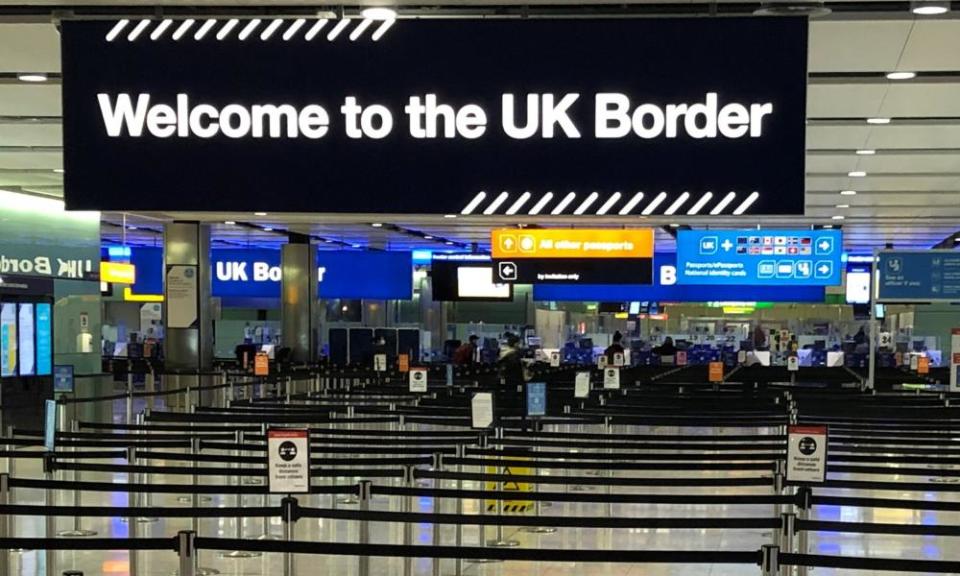What are Boris Johnson's options to stop Covid variants from abroad?

Tougher international travel measures to combat Covid-19 are on the way, with Boris Johnson saying a solution is needed that provides “the maximum possible protection against reinfection from abroad”.
The prime minister is expected to chair a meeting of the government’s Covid-O committee on Tuesday to sign off on a plan to prevent the spread of the virus from overseas. So, what are the options on the table?
Quarantine hotels
Ministers will consider whether to impose Australian-style restrictions, meaning all arrivals, including British nationals, would have to quarantine for 10 days at their own expense in government-supervised hotels. Johnson and the transport secretary, Grant Shapps, are said to favour a more targeted approach that would only require those travelling from high-risk countries to stay in quarantine hotels. But the chancellor, Rishi Sunak, has thrown his weight behind proposals – said to also be backed by the home secretary, Priti Patel, and health secretary, Matt Hancock – that all arrivals quarantine in hotels regardless of where they have travelled from, according to the Times. The paper, citing two senior government sources, said Johnson was becoming “more swayed” by the need to take decisive action. Later on Monday, Johnson confirmed the government was “definitely looking at” the possibility of international arrivals being required to quarantine in hotels.
Blanket ban on flights
Among a policy “menu” of choices presented to ministers will be the most severe option of a blanket ban on all flights into the country, reports Politico’s Playbook. It follows Israel deciding to halt all its passenger flights, in and out, for a week from Monday evening.
Targeted travel bans
Ministers also have the choice of sticking with the current strategy of targeted travel bans on countries where new risks are identified, such as the new variants in South Africa and Brazil. Last Thursday, Shapps announced Tanzania and the Democratic Republic of the Congo were being added to a growing list of countries from which arrivals are banned.
Scrapping ‘test to release’
It may only have been introduced last month after lobbying from the beleaguered travel industry, but another option is for ministers to end the government’s “test to release” scheme. Under the strategy, arrivals to England can pay to take a test five full days after coming to the country and, if it returns a negative result, they can come out of isolation earlier than the 10-day quarantine requirement. Those who have been in or through any country that is subject to a travel ban in the 10 days before arrival in England cannot use the scheme.
Related: English schools not expected to start fully reopening until at least March
Location tracking
An option outlined in a “borders enforcement” Home Office policy paper circulating in Whitehall last week involved a location-tracking app to monitor arrivals to ensure they were abiding by quarantine rules. Under the idea, similar to a system used in Poland, individuals would have to send a photograph of themselves within a stipulated time period that proves via GPS that they are at their isolation site.

 Yahoo Movies
Yahoo Movies 